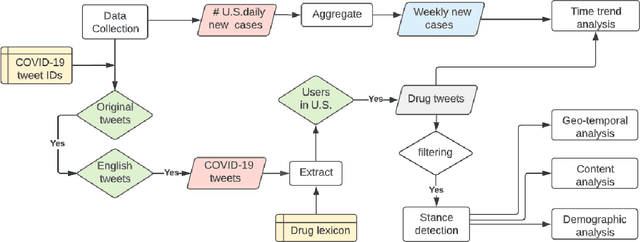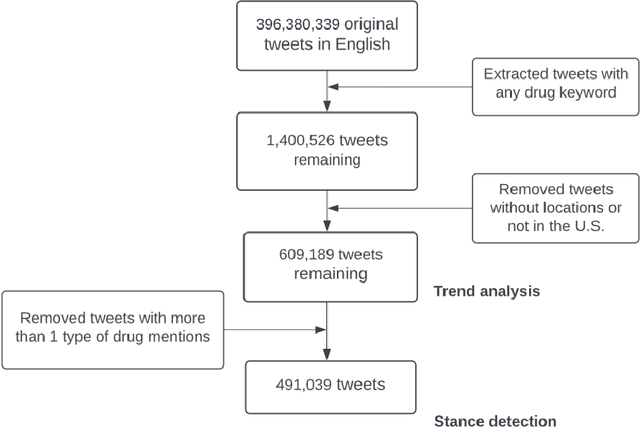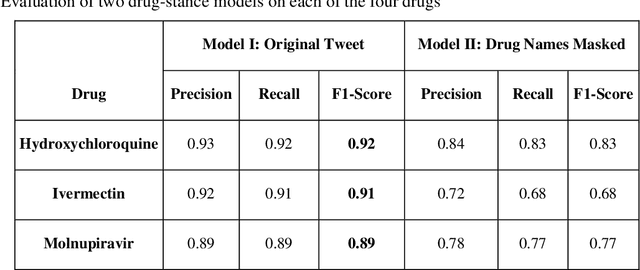Joseph M. Plasek
Using Twitter Data to Understand Public Perceptions of Approved versus Off-label Use for COVID-19-related Medications
Jun 29, 2022



Abstract:Understanding public discourse on emergency use of unproven therapeutics is essential to monitor safe use and combat misinformation. We developed a natural language processing (NLP)-based pipeline to understand public perceptions of and stances on COVID-19-related drugs on Twitter across time. This retrospective study included 609,189 US-based tweets between January 29th, 2020 and November 30th, 2021 on four drugs that gained wide public attention during the COVID-19 pandemic: 1) Hydroxychloroquine and Ivermectin, drug therapies with anecdotal evidence; and 2) Molnupiravir and Remdesivir, FDA-approved treatment options for eligible patients. Time-trend analysis was used to understand the popularity and related events. Content and demographic analyses were conducted to explore potential rationales of people's stances on each drug. Time-trend analysis revealed that Hydroxychloroquine and Ivermectin received much more discussion than Molnupiravir and Remdesivir, particularly during COVID-19 surges. Hydroxychloroquine and Ivermectin were highly politicized, related to conspiracy theories, hearsay, celebrity effects, etc. The distribution of stance between the two major US political parties was significantly different (p<0.001); Republicans were much more likely to support Hydroxychloroquine (+55%) and Ivermectin (+30%) than Democrats. People with healthcare backgrounds tended to oppose Hydroxychloroquine (+7%) more than the general population; in contrast, the general population was more likely to support Ivermectin (+14%). We make all the data, code, and models available at https://github.com/ningkko/COVID-drug.
* This is a preliminary version. For full paper please refer to JAMIA
 Add to Chrome
Add to Chrome Add to Firefox
Add to Firefox Add to Edge
Add to Edge